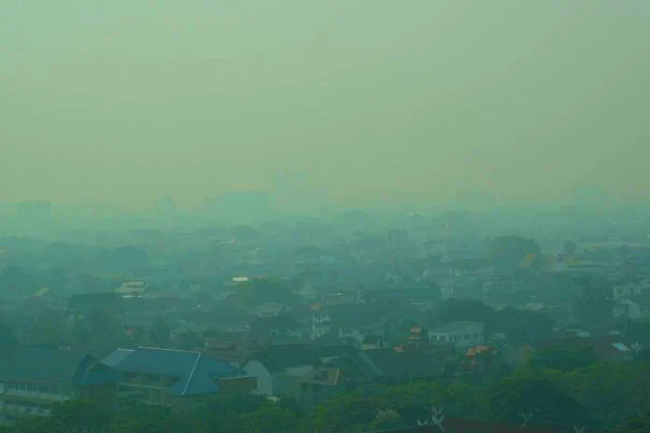Chiang Mai ranks as the third most polluted city globally amid a severe air quality crisis in northern Thailand, with particulate matter (PM)2.5 levels surging due to widespread forest fires. The situation, which peaked today, March 7, has triggered health concerns and advisories.
Northern Thailand is grappling with a significant air pollution crisis. Today, the Air Pollution Crisis Resolution Centre reported that at 7am, PM2.5 levels had exceeded national safety standards in several northern provinces.
The crisis is attributed primarily to extensive forest fires, which have been detected by NASA’s Firms website as numerous hotspots across the region. The unchecked spread of these fires is pumping dangerous levels of PM2.5 into the atmosphere, raising alarms about the potential health impacts on the population.
In Chiang Mai, the situation is particularly dire. The air quality index (AQI) readings have reached hazardous levels, prompting local authorities to issue warnings and health advisories. Medical professionals from Chiang Mai University are deeply concerned about the rising pollution, which could lead to severe health complications, especially among vulnerable groups.
The issue is not confined to the north, however. The northeastern and central regions, including areas like Uthai Thani, Chai Nat, Sing Buri, Lopburi, Saraburi, Kanchanaburi, and Ratchaburi, have also reported PM2.5 levels that far exceed safe limits. Residents in these areas are facing similar threats to their health and well-being.
Data from the monitoring stations indicate that PM2.5 concentrations in the north ranged from 43.9 to 196.1 microgrammes per cubic metre, far above the standard value. The northeast also showed elevated levels, with measurements between 37.2 and 136.0 micrograms per cubic metre. Although the central and western regions had fewer areas exceeding the standards, the readings of 23.2 to 46.4 microgrammes per cubic metre still pose a risk.
The ranking of Chiang Mai as one of the most polluted cities comes from data provided by the IQAir website, highlighting the severity of the pollution. The AQI scores reflect the concentration of various pollutants in the air, with PM2.5 being a significant concern due to its ability to penetrate deep into the lungs and enter the bloodstream, causing various health issues, reported KhaoSod.
The situation has prompted Thai authorities to intensify their efforts to tackle pollution. Measures are being implemented to control the burning and reduce the number of hotspots, which have been identified as the main cause of the hazardous air quality. The public is being advised to stay indoors when possible and use air purifiers or masks to minimise exposure.
Source: The Thaiger


